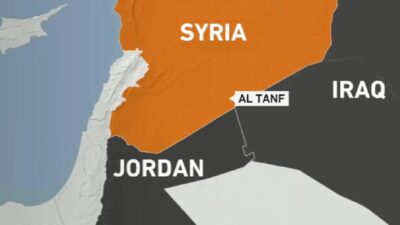Theodoros Kariotis: What Hellenism Expects from the Biden Government – The Role of Greek Americans
01/12/2020
The Greek-Turkish conflict is at a critical point and the Turkish research ship Oruc Reis has reached 6.5 n.m. from Kastelorizo and Stroggyli. So, I thought it will be useful to address the few Greek Americans who will be in some positions of responsibility in the new government of Joe Biden.
Both Athens and Nicosia suspect that Tayip Erdogan will make a significant violation of our sovereignty and sovereign rights by January 20, 2021, the date that his friend Donald Trump will depart from the White House. Therefore, a summary of Greek-American relations will be useful to those Greek-Americans that will serve the Biden government. I always remember Article 121 of the United Nations Convention on the Law of the Sea (UNCLOS) and I also remember well the struggles of the Greek and Cypriot delegations, for its preservation and the stubbornness of Turkey for its disappearance. Article 121 leaves no room for doubt or misinterpretation because it clearly states that:
Article 121 Regime of islands 1. An island is a naturally formed area of land, surrounded by water, which is above water at high tide. 2. Except as provided for in paragraph 3, the territorial sea, the contiguous zone, the exclusive economic zone and the continental shelf of an island are determined in accordance with the provisions of this Convention applicable to other land territory. 3. Rocks which cannot sustain human habitation or economic life of their own shall have no exclusive economic zone or continental shelf. It was a great victory for the Greek islands and especially for the forgotten group (Megisti, Ro, and Stroggyli) of Kastellorizo.
The importance of Stroggyli
Kastellorizo is 80 miles from Rhodes, 170 miles from Cyprus, but only 1 mile from Turkey. It has an area of 5 square miles and is now inhabited by about 400 inhabitants, while at the end of the 19th century it had 10,000 inhabitants. Let us remember, of course, that the key in the Greek-Turkish dispute is the island of Stroggyli and not Kastellorizo. Greece has a maritime border with Cyprus, only if Stroggyli is given full effect. If Stroggyli does not exist on the map, even if Kastellorizo is given full effect, we have no contact with the Exclusive Economic Zone (EEZ) of Cyprus.
Turkey has realized, belatedly, that it is off the energy chessboard in the Eastern Mediterranean and it has, also, realized that Egypt, Israel, Cyprus and Greece have a wealth of hydrocarbons. All she has left is to blackmail and intimidate her neighbors, in the triangle of Kastellorizo, Cyprus, Crete. This is the triangle that wants to share with Greece and for decades America seems to agree with it.
The US scolds China, which brutally violates UNCLOS, but deafens to the provocative behavior of Erdogan, who plays like the Chinese. The United States know where the hydrocarbons are in our region. They are particularly aware, from CIA studies, that the Aegean Archipelago has a minimal amount of hydrocarbons. It seems to be the bait of the Americans towards the Greek government, when they leave the whole Aegean to Greece, but they ask us to give a little bit of Mediterranean to Turkey.
Here, of course, lies the cunning of the Americans. With their plan they are not going to give a bigger EEZ to Turkey to the detriment of the EEZs of Greece and Cyprus. They just want a co-management and not a joint exploitation of the mineral wealth of Greece and Cyprus. So they believe that they will solve the Cyprus problem, which they have put on the shelf for a long time. As the Americans would say “with one shot two turtledoves”.
USA and Turkey.
I have repeatedly written that the Americans, to this day, want Turkey to share the hydrocarbons of the Eastern Mediterranean because they do not want to lose Turkey and throw it into Russia’s arms. They believe that the joint exploitation or better co-management of the hydrocarbons of Greece, Cyprus and Turkey should be achieved at all costs.
The US knows that Turkey does not have hydrocarbons, but they want to share its non-existent hydrocarbons with Greece and Cyprus! From 1922 the Turks were always proud that they had large shores, but did not have a large sea and after 1982 they realized that their sea was limited even more. Thus began a dangerous rhetorical war, with the exception of two hot events (1987 and 1996), but from 2018 they also put forward paranoid demands, which will surely continue in the future.
It should be noted here that experts in the Law of the Sea are aware of the US position, which follows a double standard, on the issue of delimitation of maritime zones. On March 10, 1983, US President Ronald Reagan signed a presidential decree declaring the American EEZ 200 n.m. beyond its shores. This act of America acquires special importance for Greece, because America has maintained, according to UNCLOS, EEZ for all its islands without exception.
Supremacy of EEZ
America has delimited its EEZ based on the principle of equidistance, which Turkey dislikes so much, with Russia, Canada, Mexico, the Bahamas and Cuba. But when it comes time to deal with the Greek-Turkish dispute in the Aegean Archipelago, it supports the Turkish position on equity. Thus, the Americans claim that their own islands, habitable or not, have full EEZ rights, but similar islands of ours do not have the same rights. This is an unacceptable pro-Turkish position of the Americans since 1982, which must finally be reversed.
Professor Angelos Syrigos in his excellent, 895-page book “Greek-Turkish relations”, mentions seven reasons that impose the declaration of a Greek EEZ:
- “Ensures and confirms the political and economic unity of Greece, the mainland and the islands.
- It protects the marine environment beyond the territorial waters (eg from oil slicks), which is the only wealth of the Aegean, which until today is exploited by Greece through tourism.
- Helps to deal with the destruction of the fishing fields of the Aegean, which are systematically overfished beyond 6 miles off the Greek coast.
- It offers opportunities for economic exploitation beyond the coastal zone, through, for example, the production of electricity from currents, water and winds.
- It is based on the element of distance from the shores only. Thus he refutes any Turkish argument for geomorphological elements of the seabed, which could be connected to the continental shelf.
- It closes issues that could potentially arise in the future in Greek-Turkish relations, such as that of the EEZ.
- The acquisition of increased responsibilities in the surrounding seas and giving greater power to a state.”
What we need from Biden
The Greek-Americans, who may serve in key positions in the Biden administration, must urge the new US president, who, unlike his predecessor, is well aware of the southeastern Mediterranean issues that American interests will be better served if he does the following:
A. To ask the Turkish government to withdraw immediately from the EEZ of the Republic of Cyprus, because it violates UNCLOS. America cannot strongly criticize China for violating the five-state EEZ in the South China Sea, but it can ignore similar violations by Turkey in the Eastern Mediterranean.
B. To give the green light for the delimitation of the EEZ between Greece and Cyprus, while warning Erdogan not to dare intervening in this completely legal delimitation. Biden’s associates should show him the next map that confirms that Greece has a maritime border with Cyprus.
This map shows that the EEZ of Greece is adjacent to the Cypriot EEZ but, even more importantly, it is adjacent to the tri-national point, which unites the EEZs of Greece, Cyprus and Egypt.
C. To state to Greece that the United States will not oppose the Greek position to extend its territorial waters, throughout its entire territory, from 6 n.m. at 12 n.m., according to UNCLOS and simultaneously extend its airspace also to 12 n.m., so it will not violate the Law of the Sea that indicates that the territorial sea and the airspace should me identical.
D. To ask Turkey to enter into a dialogue with Greece on the delimitation of the EEZs of the two states. In case of failure, it is should be obligatory for both parties to appeal to the International Court of Justice in The Hague.






